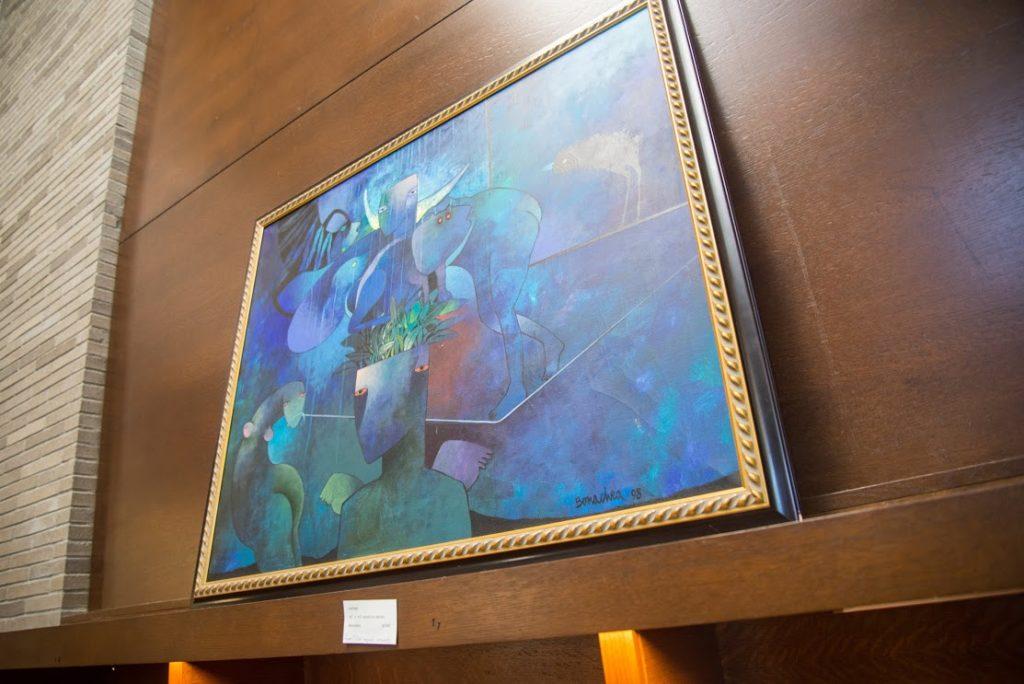By Audrey Cooney, news staff
A nationwide appreciation of Hispanic history and culture ended today after four weeks of relatively scant celebration in Boston.
Throughout Hispanic Heritage Month, different groups across the city held events meant to highlight Hispanic culture, including a series of attractions set up by the Boston Public Library (BPL) and a breakfast put on by local Spanish-language newspaper El Mundo, featuring local politicians and Hispanic leaders.
“As far as what Boston has done, I’d definitely say it’s not enough,” Alyson del Castillo, a member of Northeastern University’s Latin American Student Organization (LASO), said. “Of the mere five [events I heard of] two were actual events put on by the city… If that doesn’t show you how little the city does for Hispanic culture – I don’t know what will.”
Hispanics in the United States compose 17 percent of the population, making them the nation’s second-largest racial or ethnic group, according to the Pew Research Center. Despite this, Hispanic heritage is often less represented than that of other groups, according to del Castillo, and that is reflected in city-sponsored support of Hispanic Heritage Month in contrast to other cultural celebrations.
The BPL made a concerted effort to engage Boston residents in regards to Hispanic heritage, according to spokeswoman Melina Schuler. Several different branches of the library held events, including concerts put on in English and Spanish, a Latino Life booklist and appearances by Hispanic authors.
“The Latino Life booklist is a tool to educate the public about books recently published about the Latino community that they can check out for free at the BPL,” Schuler said. “[It’s meant] to celebrate the diversity of Boston residents and communities and to engage the public in such celebrations.”
The BPL also released a book list for Black History Month this February and hosted events like a film series and panel discussion on African American poetry of the 19th century.
In contrast to Hispanic Heritage Month, however, Boston’s City Hall also hosted a gallery of art created by African-American city residents in honor of Black History Month. John Crowley, the curator and events coordinator for City Hall, told The News in February he estimated the city has been doing so for the past 20 years.
Understanding and celebrating the heritage of residents is important to the city, according to An Le, the Community and Policy Affairs Advocacy Coordinator for Boston’s Office for New Bostonians.
“We are a city of immigrants,” Le said. “Knowing where our families come from and the history and the heritage is part of our identity.”
When asked to describe how Boston recognizes Hispanic Heritage Month, Le cited an event featuring food and performances at City Hall that, while open to the public, is more an internal affair for city staff.
Not everyone agrees that Hispanic Heritage Month is an important observation, however. Jorge Blanco, a third-year mechanical engineer and member of LASO, said that the month – at least as it recently played out – has little impact on Hispanic members of society.
“I feel as though Hispanic Heritage Month is bigger for those people who are not Hispanic or who do not truly feel a connection with their Hispanic heritage,” Blanco said. “While, in theory, it seems like a good idea to have a time for all Hispanics to come together, given the vast differences among people from these different countries and the lack of attachment to the celebration of the month, it is not an effective way of actually unifying the Hispanic communities.”
The dates for the observance, Sept. 15 to Oct. 15, were chosen because Costa Rica, El Salvador, Guatemala, Honduras and Nicaragua all celebrate their independence days on Sept. 15. The anniversaries of Mexican and Chilean independence also fall within the month.
The dates highlight the perils of viewing Hispanic culture as monolithic, Blanco said: people from the Caribbean or most of South America attach little significance to them.
Del Castillo believes that while keeping such distinctions in mind, people should do more to explore the impact that Hispanic and Latino culture has made in the US. She says it’s an often-overlooked subject.
“I think Hispanic heritage month is very important to our society,” del Castillo said. “If you want to learn about Hispanic heritage – even in upper-level education – you have to fit in specific classes about those countries because, otherwise, you will get next to no exposure.”
In the future, Boston should do more to acknowledge its Hispanic residents, del Castillo continued.
“We can have an entire festival surrounding marijuana,” del Castillo said in reference to the Boston Freedom Rally, a festival advocating for legalized marijuana that is unaffiliated with the City of Boston. “You’d think we could have one event larger than [showing] some movies at the BPL for the myriads of Hispanics living in this city.”
Photo by Scotty Schenck









